Motocrosser-Turned-Rally-Racer Andrew Short Interview
Andrew Short talks about his transition from professional motocross racing to rally racing and now his transition from the Rockstar Husqvarna rally team to the Monster Energy Yamaha rally team.
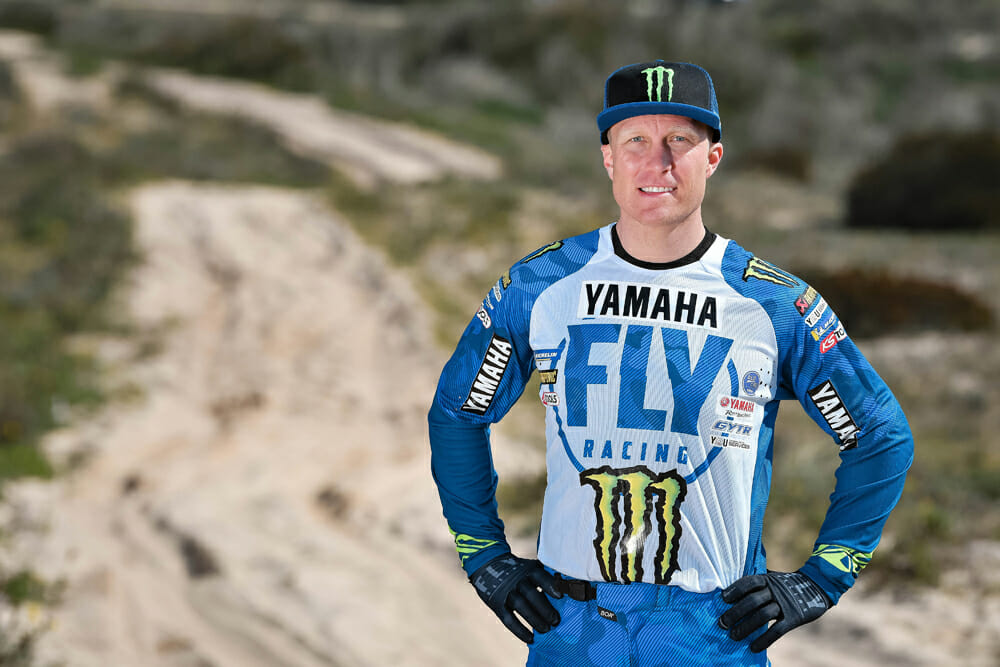
Photography by Yamaha, Husqvarna, Hoppenworld.com and Kit Palmer
Andrew Short enjoyed a 16-year career as a professional motocross and supercross racer. During that time, the Colorado native earned over 50 podium finishes and nine wins. One of his highlights was being part of the American team that won the 2010 Motocross of Nations held in his home state. His friendly personality and passion for riding has made him a fan favorite and popular among his teammates and fellow riders.
After he retired from professional motocross at the end of 2016, Short worked as a team advisor and brand ambassador for Honda before making a big transition to compete in rally racing, including the Dakar. After a steep learning curve, he was able to become competitive in rally and even took his first win at the 2019 Rallye du Maroc, a leadup to the 2020 Dakar. He appeared to be ready to compete for the podium, but he had a rough event and eventually finished 10th overall after 12 days of racing in Saudi Arabia. Just a few weeks ago, Short announced that he will be racing for the Monster Energy Yamaha Rally team for the next two seasons with the goal of earning his first Dakar podium.
We spoke with Andrew as he was sitting on his porch on his ranch in Texas waiting out the Coronavirus quarantine.
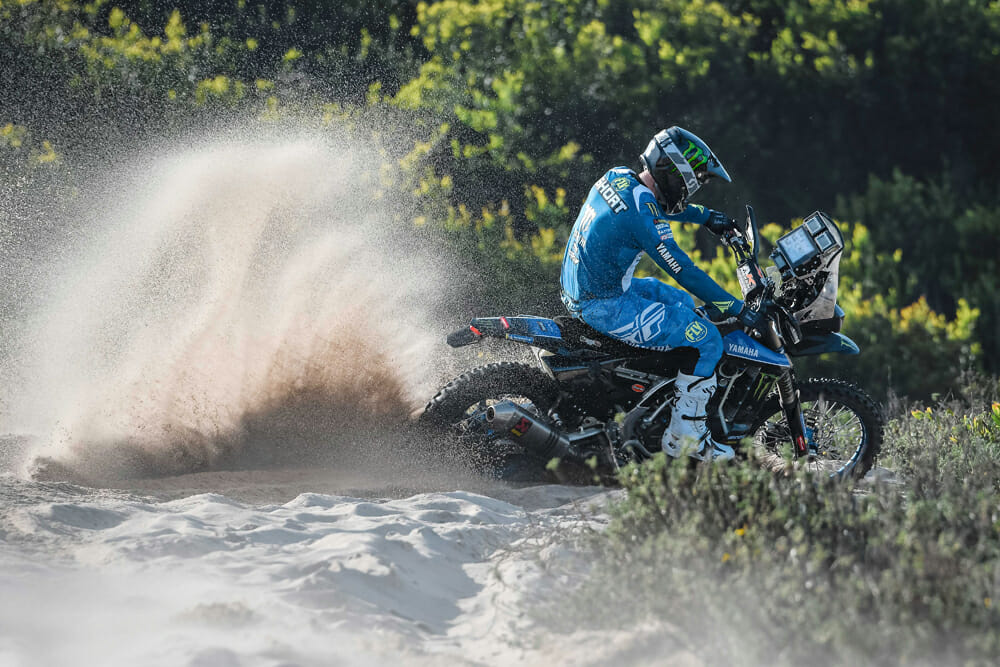
You had a 16-year career as a professional motocross racer. You retired at the end of 2016 and for 2017 you took a position with Honda. What was your role there with Honda?
Mostly I worked with the race team and helped with Kenny [Roczen] and Cole [Seely]. I did a lot of things. I helped primarily with the race team with testing, but also with the riders at the races. I did a little bit of production testing, but a lot of media events for new products coming out. That’s where the brand ambassador came in. I spent a lot of time at the building, the race shop, and at the races for those guys. I had a great relationship with them.
At the end of that 2017 season, you ended up signing with Rockstar Husqvarna to race rallies. How did that come about?
How it all came together was strange because it happened really quickly. In a matter of a couple days I was on a plane going to Morocco for the final round of the world championship. The rider I was going to take over for had a big injury down in Chile at a race. He ended up being my team manager later. His name is Pela Renet. So, I ended up taking over his position, and then I was kind of thrown into the deep end. The decision was quick because my contract was up with Honda, and I was at this kind of crossroads of my life where rally sounded like a great life experience. I loved racing. I loved adventure. Something I couldn’t pass up. I really was interested in it and jumped all in, headfirst right into a steep learning curve of trying to figure out rally racing.
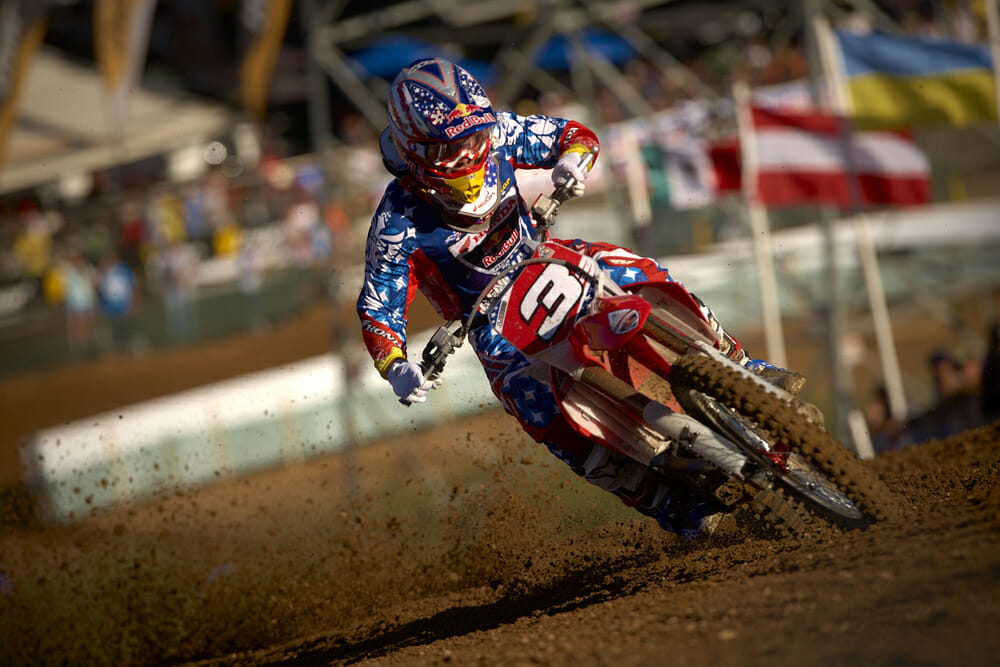
You basically signed in October and then you raced Dakar less than three months later. How steep was that learning curve for you? Had you even ridden a rally bike before you signed that agreement?
I did some rally stuff before that, but it was purely just as a hobby. I did one race in Sonora, Mexico for a holiday and vacation. It was kind of a sticky thing even with Honda at the time, just because I was going to miss a supercross and not be there for the guys. But I really wanted to go down to Mexico and see what rally was all about. It was one event that I did. Then from that point on, it was a hobby that I really liked. I had ridden the Honda rally bike a little bit with some of the Japanese that were there for supercross and motocross testing. Sometimes I would go up to the high desert when I had some free time and ride that bike, as well. So, I had ridden the bikes, but I had no experience, and I had no idea truly what rally racing was all about. So, it was a lot more difficult than I expected.
When you had that short window, was there anybody that helped you train for the navigation part of it and things like that?
Yeah. There were two people that were really influential. The first person was Jordi Viladoms, who runs the KTM and Husky program for rally. I learned a lot from him. His knowledge for rally and the history of it, just the strategy behind it is huge. In my eyes, from what I’ve seen, he’s probably the most knowledgeable person about rally. So, I was really lucky to be able to train and learn from him. Also, here domestically I got in touch with Jimmy Lewis. Johnny Campbell was the one who suggested I work with Jimmy. He said, “You got to go to Jimmy and learn and try to understand his mindset and how he approaches rally racing.” It was more old-school and more traditional. The sport has evolved a lot since Jimmy raced rally, but the fundamentals and basics are still the same. Jimmy is a great person to learn from. He’s a great instructor. He has a way of wrapping his head around the skills and trying to communicate them in a way that’s unique. So, between those two, they were really influential. I learned a lot from them about rally, and I combine that with my years of riding, and I still have so many great memories of riding and enthusiasm to learn something new.
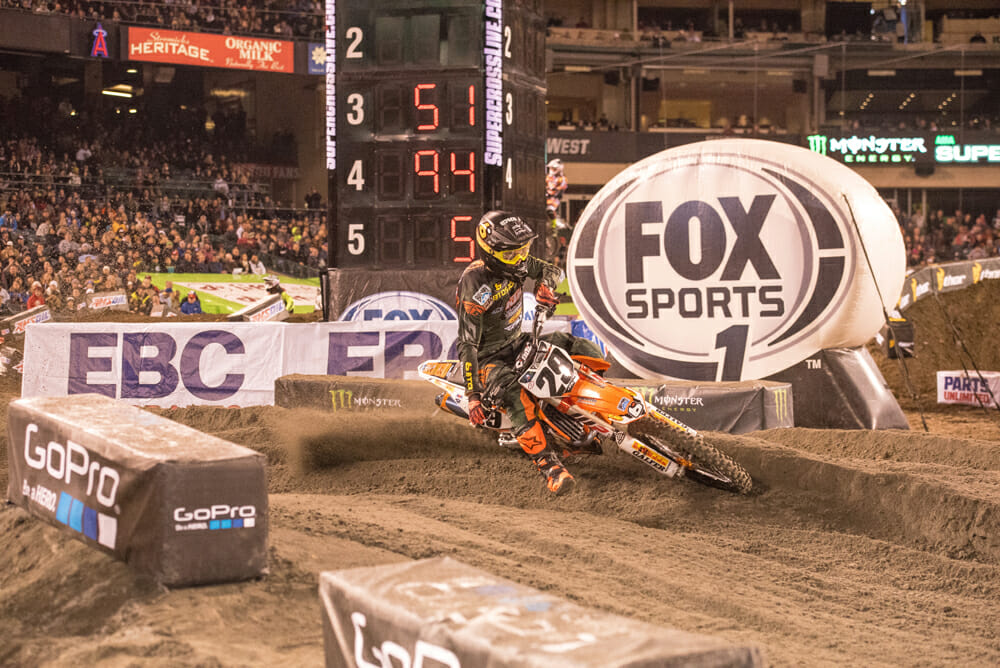
Your first Dakar in South America you finish 17th. You broke your ankle with a couple days to go but still finished. Were you kind of wondering what you got yourself into?
No. I kind of knew. Jordi said, “You’re going to get lost once. You’re going to break down once. You’re going to crash once. All these things are going to happen. It’s just how you respond to these situations.” To finish, especially your first year, it’s the goal. When people told me that, I rolled my eyes. It sounds so silly and stupid just to say, “I want to finish,” especially coming from motocross and supercross where I had a lot of success, and I competed at a high level. But I just didn’t understand the whole reality of going from country to country, and the long days on the bike, and the mental fatigue, and all these things. So, in one sense I expected it to be super gnarly and challenging and tough, and that’s where breaking an ankle and still finishing at the end comes in. But what I didn’t understand is how to compete at a high level every day. I just didn’t understand how those guys could go so fast day after day and keep it going. I was clearly way off the pace. That really frustrated me, so I found myself pushing above my limits. That’s why I crashed a lot.
You went back to Dakar and managed to finish sixth in your second attempt. Were you happy with that?
Yeah. At that point I had a much better idea of how to ride and race and approach it. So, at that point, the confidence was starting to come. I was at a crossroads, also, where if I wasn’t going to be competitive, it was probably time to stop rally. So, I was really pushing and trying to get to that level. The results validated that I could do it, I could be successful. I started to get the hang of things. That made it a lot more fun, too, just knowing that I could be there. All along when you’re thinking these things that if you put in the work, it will come. It was just great that it finally was starting to happen the way I envisioned it.
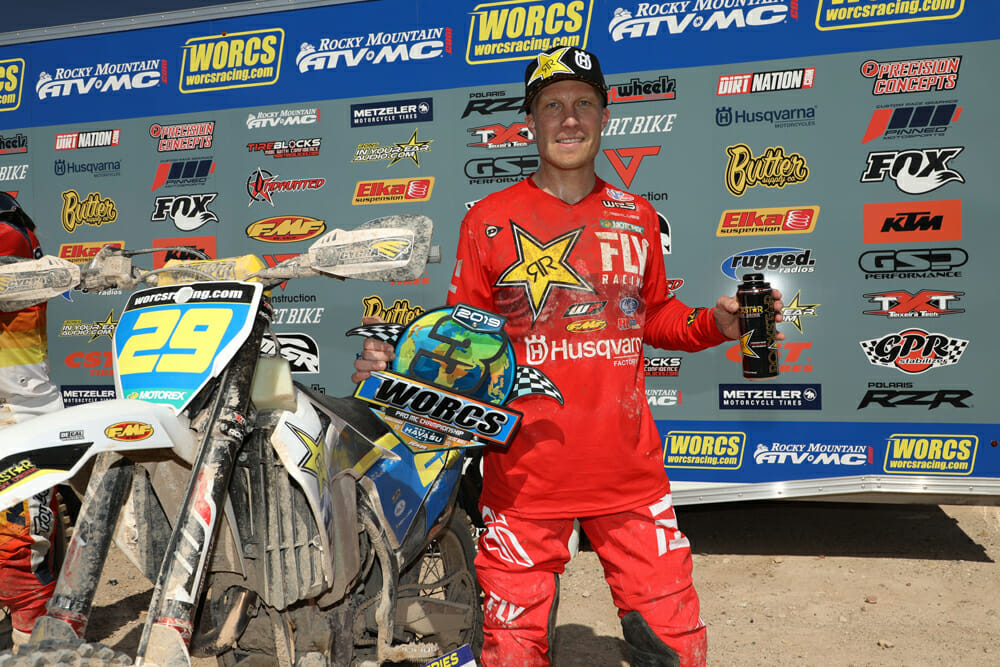
Later in 2019, you had some other strong results and won the rally in Morocco. Things were looking good for you heading into the 2020 Dakar, but things got off to a rough start for you with a crash in testing just before the start. Tell us how this year’s rally went for you.
The lead-up to this year’s Dakar was perfect. I continued along the same learning curve. I had a lot of success. I was fast in Abu Dhabi; had some bike problems. Then Silk Way I was second, but more importantly I led out my first stage after winning my first stage at a world championship race. I was able to keep Benavides and Van Beveren behind me for second place. Then the race after that was Morocco and that’s the last big tune-up before Dakar. Everybody’s there. They introduced the new style of the road book where they hand it to you right before, which really helped me because there was less cheating, in a sense. It’s more just pure navigation, more old-school. That’s how I trained with Jimmy and Ricky and those guys. So, it really helped me. The build-up was perfect. [However], once I got to Dakar [in Saudi Arabia for 2020] it was like everything was going against me. That’s rally racing. There’re so many elements to be able to compete for a win. It was just clear from the beginning it just wasn’t right for me. I had some big crashes and some stuff happened with my bike that I was fighting on day two. That was during the super marathon, so there was no assistance. At that point, once I was that far back, it was clear that I wasn’t going to be able to win. It’s also clear, on that team and that program, that if you’re not there to fight for the win, then you’re there to help the team. That’s something I agree with, so, I tried to do everything I could to help. It was crazy. I had some big crashes. I really tried to push and do everything so I wouldn’t have any regrets on my end, knowing that I rode to my fullest, and it just wasn’t meant to be. It was cool to see Ricky have so much success, especially for America. I think it’s great for the sport for us here in North America, because worldwide it’s so big. I don’t think people here really understand how prestigious this race is. It was cool just to see it.
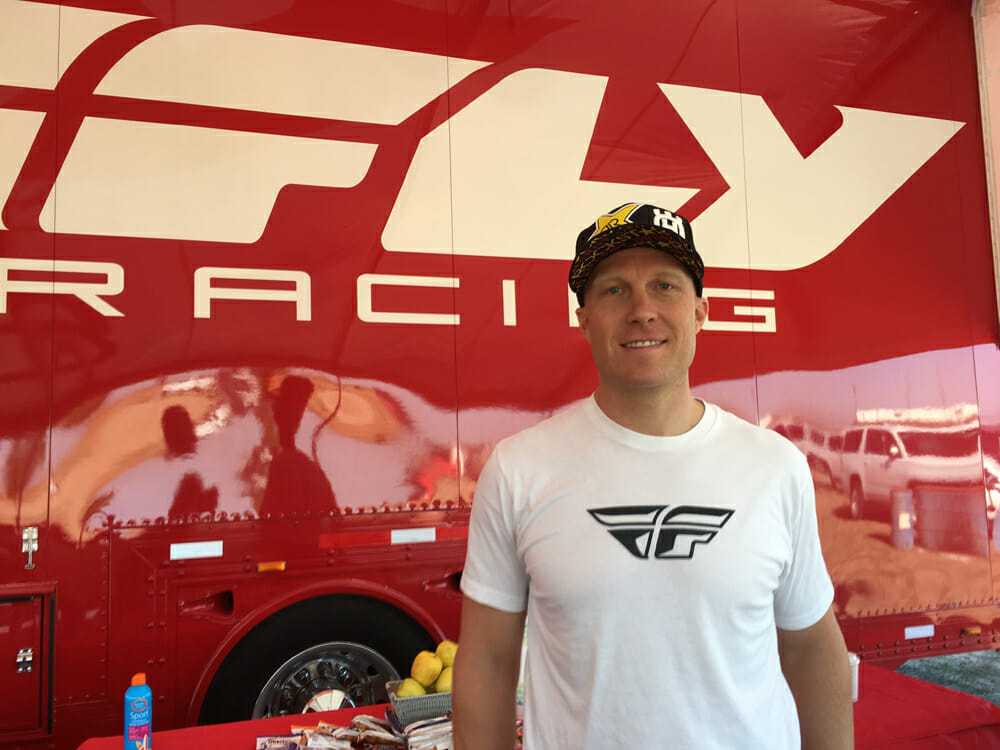
After this year’s Dakar, it came as a bit of a surprise to many that you signed with the Monster Yamaha team. How did that come about?
It was a really cool opportunity for me that kind of came up after Dakar. It was cool for me because being at Dakar this year, typically there’s not many Americans there. You’re kind of an outcast. The presence in the pits in the bivouac is very much European-based. But this year, there was a lot of people there from the U.S. from Monster, especially. It was cool to see all the Monster guys there. I think once we got back from the race that kind of opened up an opportunity for me. It was really cool just for me to have the opportunity to be associated with a company that has a huge passion for Dakar. That’s what I’m all about now. This race has kind of taken over my life. It’s something that I really enjoy. It is cool to be associated with one of their teams.
Yamaha has been making a big push and putting a lot of finances and resources into their program, so it seemed like a great opportunity and timing for me to be involved and jump on board with what they have going. I can push and make the most of it for the last push for me in Dakar. I’m not getting any younger. I’ve been around racing for a long time and I feel like I’m in a great spot in my life to try to push and have as much success as I can with this sport. It’s not going to be around forever. I am really thankful for the opportunity. I get two more shots at Dakar. I thought this would be my best opportunity to have the most success.
How different is the Yamaha rally bike compared to the Husqvarna you’ve been riding and the team?
Yeah, both of them. The team is much different, and the bike is much different. To be honest, it’s so new that it’s hard for me to judge if it truly is a lot of different or not, but my initial impression is the bike is quite a bit different, just in terms of the feeling of everything from the power, the torque, the horsepower, to the chassis and suspension. Just how they approach racing. I’m really looking forward to actually going to the races and see what the staff and the people are like and learning from all their research and experience that they have. I think it will be a big benefit to have a different mindset of the people around me. I can take what I learned previously and what they know and how they go about it and hopefully bridge the two. Also, realistically, when people change it doesn’t matter, in any sport at a high level the change is difficult. Often times people do this for hope that things are going to get better, or the grass is greener on the other side, but I also know that a lot of it comes down to myself and the hard work and dedication that I put in, and it’s not just going to be a magic answer.
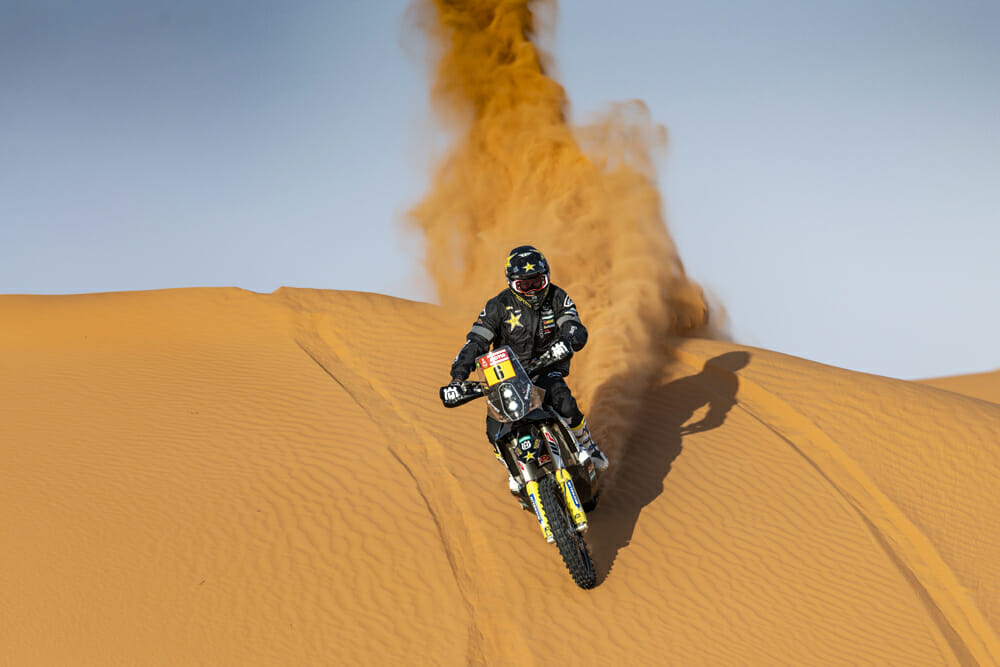
Do you think that Yamaha will be competitive as a team and be able to be in contention to fight for the win and the podium?
Yeah. I think obviously with Ricky winning this year, it kind of gives you hope and reality that you can win on another team besides KTM or Husky. Van Beveren has been really close before he had the crash and his bike let go. That’s why I think they’ve dedicated so much money and resources and trying to push to get to another level recently with Yamaha, because they know they are really close. They just had a few more pieces of the puzzle to put together. They’re learning just like everyone else is. That was definitely part of my thought process going into it. I’ve also seen what the other program has and how they approach it and how they won. I’ve been to three of them with that team, and they’re definitely really strong. There’s a reason why they’ve had so much success and winning in the past, and they have great riders. So it won’t be easy. It never is. That’s the beauty of racing.
When you train with Jimmy Lewis, do you also train with Ricky Brabec?
We almost always go together. But this year, before Dakar, it was a little different, so we didn’t go together just before Dakar. But before that, yeah. Every time I’ve been to Jimmy’s, Ricky has been there also. It’s fun for me. I really enjoy riding with him. We’re different in a lot of ways but similar in others. It’s cool even when you’re at the race just to have another American there. This year with Skyler Howes, it was good to have him.
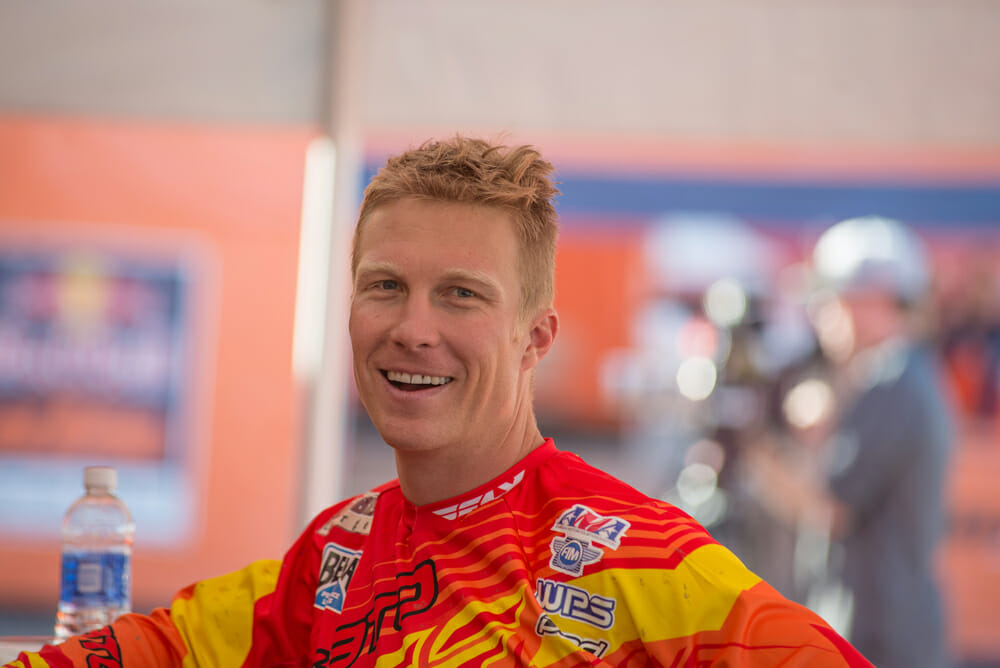
The rally events are several days. How many hours are you on the bike? How do you train for that?
It was hard because you could go to Pahrump, Nevada, and try to put in a 10- to 12-hour day, but you’re not pushing at a high level. You don’t have the same mental fatigue. It’s kind of like the motocross guys. They can ride at [trainer] Aldon Baker’s all day with four guys and push each other, but the conditions still aren’t the same. The atmosphere is not the same as race day at a national. It’s hard to replicate. So, we try to do that with rally. Part of it is just being in the moment and really enjoying it and trying to make the most of it, and just competing. The biggest thing is reading terrain, reading the other riders, the strategy of it, kind of knowing where you’re at and where you’re going to be the next day if dunes are coming up, or if it’s just going to be roads where you’re not going to be able to put a lot of time on somebody. It’s kind of knowing what’s coming up, where you’re at, where the other riders are, all these things. It’s trying to study these things. When you do get lost, staying calm and controlling your emotions and trying to figure it out piece by piece on the last known place where you were, the last waypoint.
To train for these things, everybody has a little different approach. But for me, some of the biggest things that I work on is reading the desert. As a motocross guy, you don’t really understand this until you’re there and competing and you’re going so fast trying to read the land and what’s coming at you at these high speeds. Obviously [you have to be] fit, but you have to be pretty average in everything. You have to have good strength, good endurance. Your body and stomach have to be used to eating crazy foods. You can’t be on a super strict diet and then go to some of these countries where there’s not a lot of fruits and vegetables. Your stomach has to be able to tolerate what you’re given, and in a sleep-deprived state. It’s hard to train for this stuff, but I think a lot of it is just being well-rounded on a lot of different aspects.
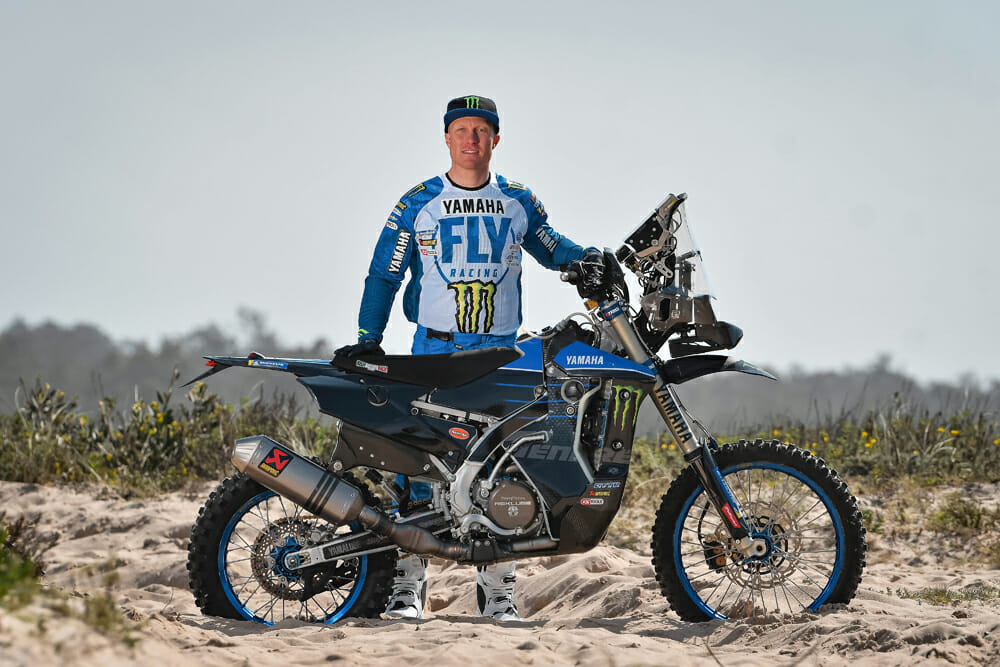
At Dakar or some of these other rallies, how long are you typically on a bike in a day?
Some races are short. Some days you’ll only be on the bike six hours, at a world championship race. But you’re pinned for six hours. Sometimes at Dakar I’ve had days as long as 12 or 14 hours. You wake up super early, four in the morning. You’re on the bike at 4:30, and you’re on a liaison riding in the dark on really dodgy roads, kind of like Mexico where the pavement blends in. You don’t have good light. There’re potholes. Your tension is kind of up and you’re already kind of fatigued. Then once you start the race, you have a lot of mental energy you’re burning, thinking from navigating and trying to read where everyone else is at. You get scared every once in a while. You have a close call and your heart rate spikes.
Then also the physical aspect. Some days are really long. Ten, 12, 14 hours of riding. And then you get back and you have a lot of organizational stuff, prep, meetings. There’s a lot of other stuff going on in terms of the road book and trying to study where you’re going the next day, where the other riders are at, and talking about the bike and all these things. It all blends together, and once you start a rally it’s like the world just disappears and you’re only focused on what’s in front of you at the moment. The other thing I think that’s difficult that doesn’t really sound that bad is you go from bivouac to bivouac. So you ride from one place in the morning, you end at another place, then you’re trying to find where your gear bag is because it got stuffed in some truck, trying to get organized again, find clean socks or maybe you have to do laundry so you’re trying to find some clean water somewhere. All these things you take for granted. At home it’s a lot easier to do all this stuff and to prep for it than when you’re on the road in the desert and all these foreign places. Trying to find clean water for the CamelBak and stuff like this.
The challenge and the adventure and the places you see, though, are really cool. You have a lot of memories that you’ll never forget. It’s hard to describe. That’s the bummer thing about rally is you go see all this cool stuff and you try to describe it to people and it’s hard to communicate it. Even for TV, they show some stuff from the helicopter, but you see some really cool stuff in all these countries. To get to ride 10, 12, 14 hours a day, it sounds like a lot but last year for Silk Way I started in Russia, went through Mongolia and ended in China in the Gobi Desert. While it’s long days, you really get to see the country and the cultures and the people. You see parts of these countries that nobody else really ever gets to see. It’s really cool to have all this experience going on.
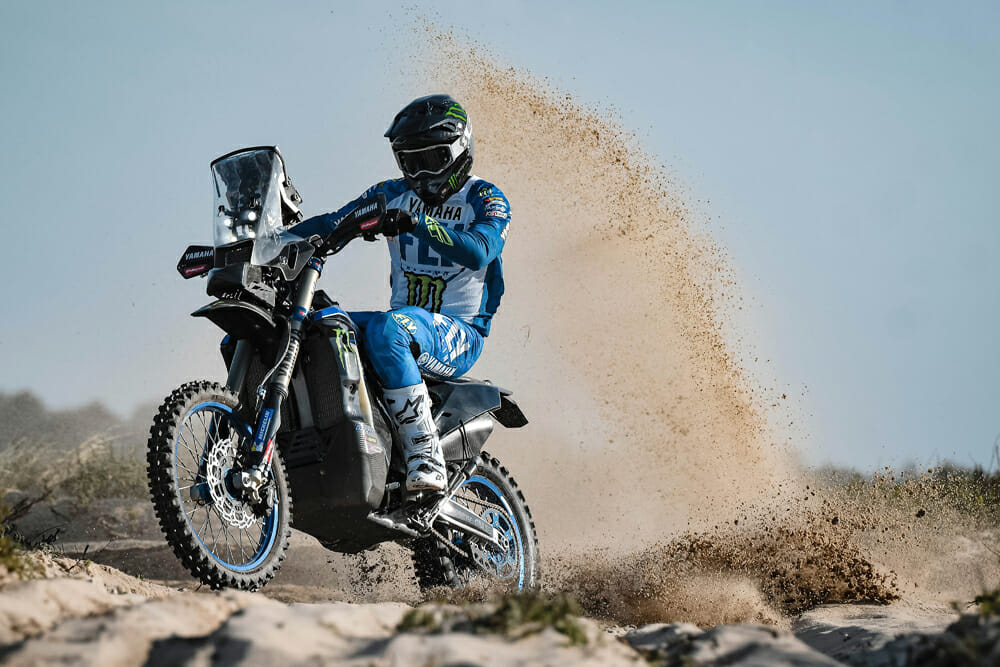
What is it like to ride a rally bike compared to riding a typical off-road bike or a motocross bike?
It’s kind of like a moto bike. The hardest thing to get used to is the fuel. When you start the day, you’re ready to go, like gung-ho. You have nine gallons of gas in your bike, and the first bump you hit, and the thing goes sideways, that’s when your mind or your stomach just sinks. You’re like, okay, I got to chill out a little bit. But then when you’re empty and you’re pulling into the fuel stop, you’re pinning it and the bike’s reacting like a motocross bike and you’re just sending it. It’s super fun. So, the hardest thing to wrap your head around is how much fuel you have at that moment. You pull into the fuel stop and you were just pinning it, hitting bumps and the bike’s reacting awesome, and then now you’re full again on fuel. It’s hard to switch your brain over to thinking, “Okay, I got to brake a little earlier. I got to be a little more mindful of what I’m going to hit.” Things like this. So that’s the hardest thing about riding a rally bike is just being mindful of how much fuel you have at the moment. But for the most part, those bikes feel like a moto bike when they’re empty. They’re really fun to ride.
You have a two-year deal with Yamaha. Your plan is to do two more Dakars, and two more years of rally?
Yeah. That was one of the main motivations for me. It was guaranteed to go do two more Dakars. I know that you can’t force anything at Dakar and sometimes you need a little bit of luck on your side. I want to make the most of it for the next two. I’m really thankful for the opportunity. CN
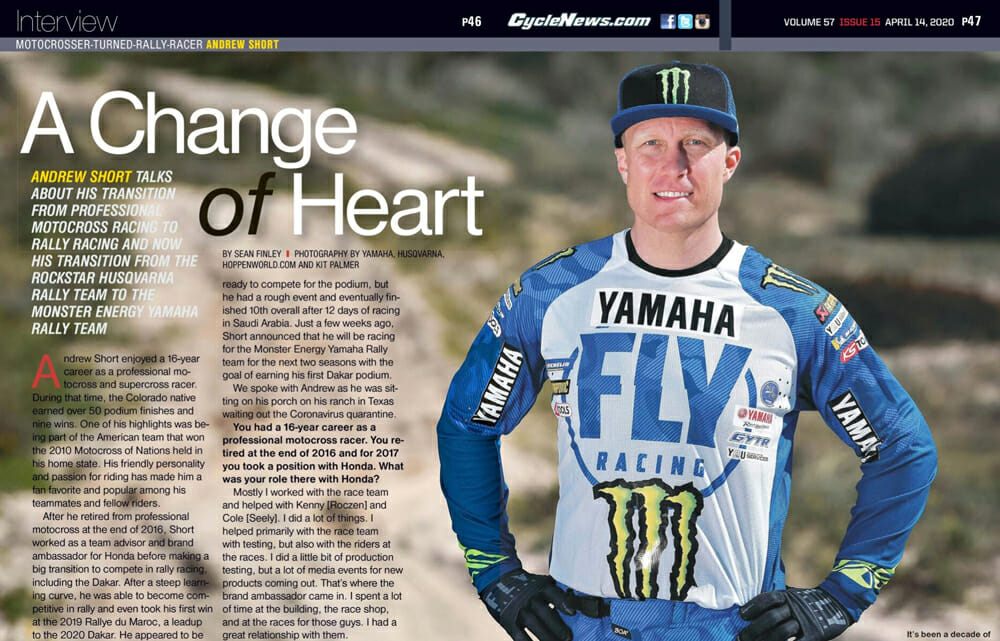
Click here to read the Andrew Short Interview in the Cycle News Digital Edition Magazine.
Click here for all the latest motorcycle Industry News on Cycle News.
"cycle" - Google News
April 20, 2020 at 07:00AM
https://ift.tt/34OmKKp
Andrew Short Interview - Cycle News
"cycle" - Google News
https://ift.tt/32MWqxP
Shoes Man Tutorial
Pos News Update
Meme Update
Korean Entertainment News
Japan News Update
Bagikan Berita Ini















0 Response to "Andrew Short Interview - Cycle News"
Post a Comment